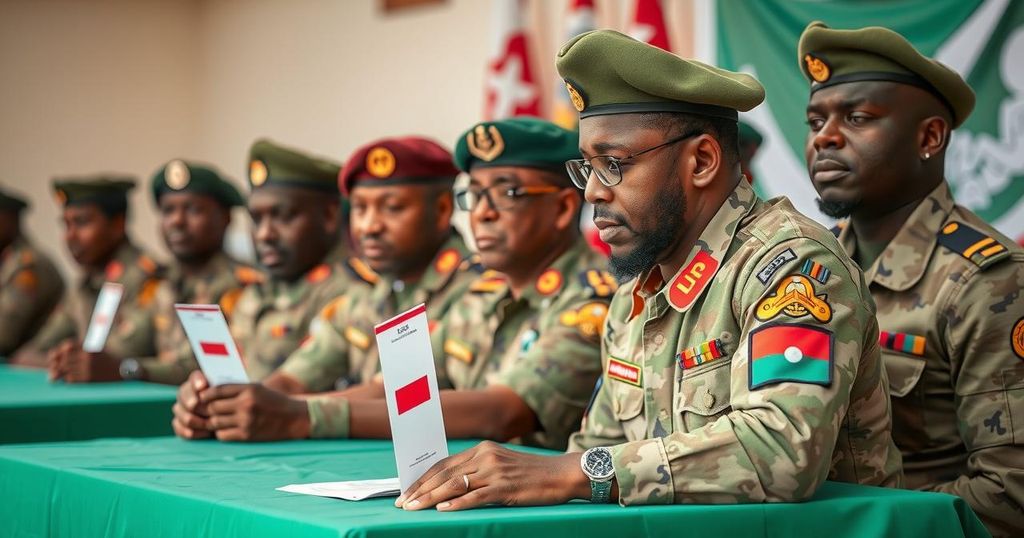Chad’s General Election: Low Turnout and Opposition Boycott Amidst Military Transition

Chad’s recent general elections saw low participation, mainly due to opposition calls for a boycott, questioning the legitimacy of the process under President Mahamat Idriss Deby Itno. Voter apathy is heightened by claims of pre-packed results and ongoing socio-economic challenges. Despite asserting the significance of these elections for restoring democracy, distrust prevails among citizens.
Chad held a general election on a Sunday amidst low voter turnout, with expectations of just 38 percent participating according to midday reports from the elections management agency, ANGE. Despite government assertions that the elections are a vital step towards ending military rule, opposition parties have called for a boycott, claiming the outcomes have been predetermined. Consequently, many citizens opted to abstain. Notably, Succes Masra, leader of the opposition Transformers party, reported that a substantial majority heeded the boycott call, highlighting the pervasive sentiment of disillusionment regarding the electoral process.
President Mahamat Idriss Deby Itno, who rose to power via military succession in 2021, has urged citizens to vote; however, the credibility of this election remains in question, with allegations of pre-manipulated results surfacing. Voting conducted on Saturday for soldiers, police officers, and nomads exhibited varying turnout statistics, suggesting a bifurcation in engagement based on demographics. Incident reports indicate missing ballots and infrastructural challenges, reflecting transitional woes amidst climate-associated adversities affecting nomadic communities. Despite the concerning environment characterized by Boko Haram threats and international relations challenges, the government perceives the elections as pivotal to transitioning to a democratic framework.
The political landscape in Chad has been tumultuous since military rule was established following the death of longtime president Idriss Deby in 2021. His son, Mahamat Idriss Deby Itno, ascended power through a military transition that has faced criticism regarding its democratic legitimacy. The country has consistently grappled with challenges such as economic inequities, security threats from extremist groups, and strained relations with France, its former colonial ruler. These elections are critical as mandated by international observers and local stakeholders alike, seeking to restore civilian governance and address pressing issues faced by the population.
In conclusion, the recent elections in Chad underscore a critical juncture in the nation’s political evolution. The opposition’s boycott and the resultant low voter turnout signal a profound discontent with the current regime. While the government advocates for these elections as a turning point towards democracy, significant skepticism remains regarding their legitimacy due to alleged pre-determined outcomes and logistical failures. The ongoing socio-economic and security challenges further complicate Chad’s path to a stable democratic governance.
Original Source: www.hudsonvalley360.com






